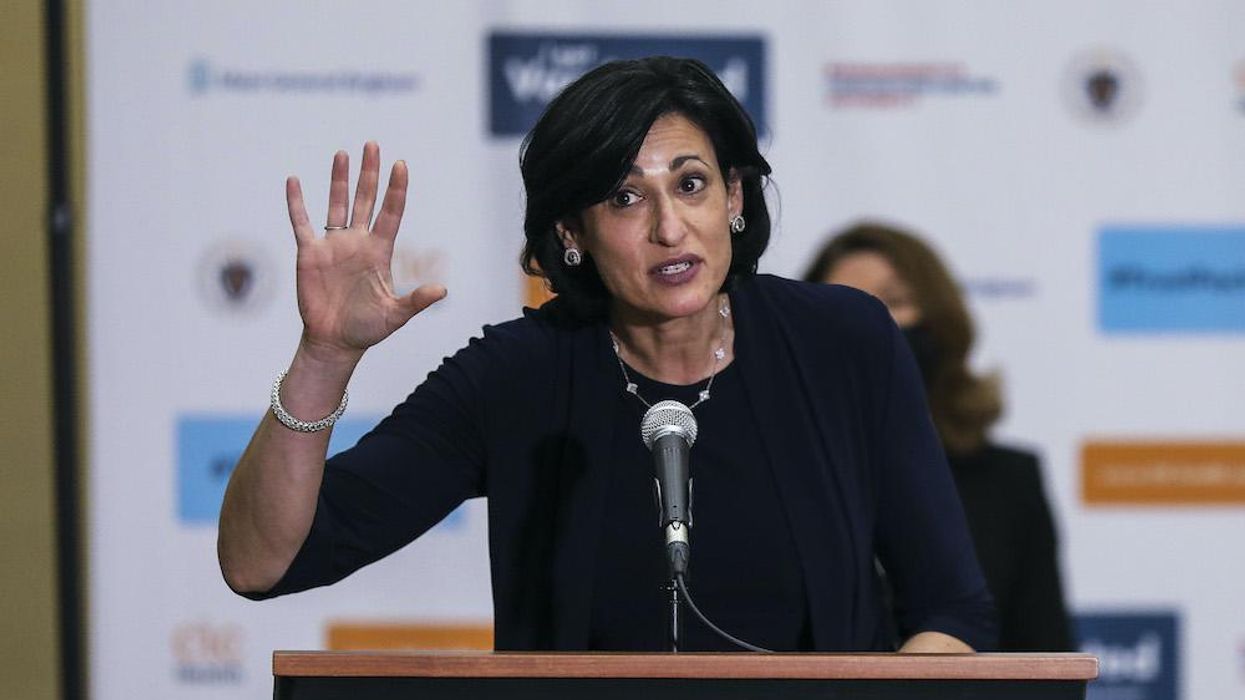
Photo by Erin Clark-Pool/Getty Images

Get your facts straight
The Centers for Disease Control and Prevention Director Rochelle Walensky made serious waves this week.
First, she declared during a scripted "off-script" moment in the middle of a CDC news conference Monday that she is "scared" and has a "recurring feeling ... of impending doom" when she looks at the coronavirus horizon. She urged anyone listening to her remarks to "sound the alarm" about an uptick in U.S. COVID-19 cases and to get the vaccine.
Then, later that night, Walensky went on MSNBC's "The Rachel Maddow Show" and told the host that it looks like folks who get the vaccine don't carry COVID-19.
"Our data from the CDC today suggests that vaccinated people do not carry the virus, don't get sick, and that it's not just in the clinical trials, but it's also in real-world data," she said.
Now the CDC is saying not so fast and admitting that it really does not know if vaccinated people can still get or spread the virus.
The New York Times reported Thursday that the agency is trying to walk back Walensky's suggestion that vaccinated people never get or transmit the virus.
Apparently, the CDC got some serious pushback from scientists across the country who said the actual data is not nearly sufficient enough to warrant such a claim.
Instead, the data suggests "it's much harder for vaccinated people to get infected, but don't think for one second that they cannot get infected," Paul Duprex, director of the Center for Vaccine Research at the University of Pittsburgh, told the Times.
The CDC tried to reframe Walensky's comments to the paper.
"Dr. Walensky spoke broadly during this interview," an agency spokesman said to the Times. "It's possible that some people who are fully vaccinated could get Covid-19. The evidence isn't clear whether they can spread the virus to others. We are continuing to evaluate the evidence."
John Moore, a virologist at New York's Weill Cornell Medicine, told the Times that, during a pandemic when the public is searching for clarity, experts need to get their facts right.
"If Dr. Walensky had said most vaccinated people do not carry virus, we would not be having this discussion," Moore said.
"What we know is the vaccines are very substantially effective against infection — there's more and more data on that — but nothing is 100 percent," Moore added. "It is an important public health message that needs to be gotten right."
Dr. Peter Bach, director of the Center for Health Policy and Outcomes at Memorial Sloan Kettering Cancer Center in New York, echoed those sentiments, telling the Times, "There cannot be any daylight between what the research shows — really impressive but incomplete protection — and how it is described.
"This opens the door to the skeptics who think the government is sugarcoating the science and completely undermines any remaining argument why people should keep wearing masks after being vaccinated," he added.